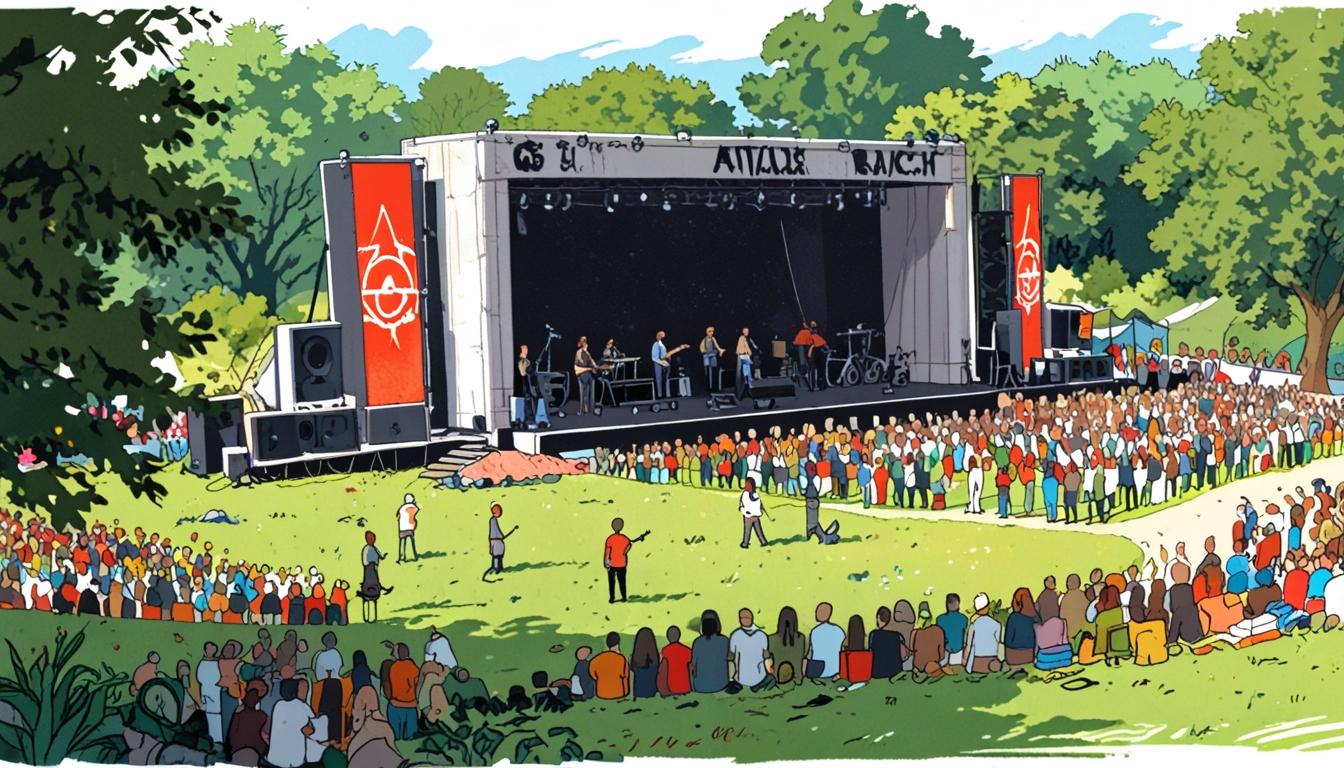A comprehensive study by the Tyndall Centre for Climate Change Research has recently unveiled the sustainability-focused efforts surrounding Massive Attack's performance at Bristol's Clifton Downs, a pivotal event in the ACT 1.5 project. This performance took place in August 2024, featuring a line-up that included DJ Milo, Sam Morton, Lankum, and Killer Mike, all under the stewardship of Lead Producer Mark Donne.
The ACT 1.5 initiative aims to align the music industry with the decarbonisation targets outlined in the United Nations Paris Agreement, particularly those related to maintaining global temperature rise below 1.5 degrees Celsius. Initiated in response to Massive Attack's concerns about the environmental impact of touring, the project seeks to challenge the conventional practices associated with live performances. Donne noted that the motivation stemmed from a growing frustration within the band regarding the industry's inertia in addressing climate issues. He commented, “If they were to completely move away from live shows, the industry would always find another headliner,” emphasising the band's potential leverage to drive meaningful change.
The project’s framework was established through the Super Low Carbon Live Music Roadmap, which was commissioned by the ACT 1.5 team in 2019. This roadmap delineates specific targets for reducing greenhouse gas emissions tied to live events, advocating for a more comprehensive approach to emissions reduction that includes aspects like audience travel, which, according to estimates, accounts for about 80% of the carbon footprint of these events. Donne expressed the need to address this significant factor, stating, “If any other sector had 80% of its emissions coming from one place but only ever discussed the remaining 20%, they would be ridiculed!”
The data gathered during the Bristol event covered various elements of the production, such as energy use, travel logistics for artists and crew, and food consumption, which was meticulously analysed by A Greener Future (AGF). The findings from this first phase of ACT 1.5 are set to inform future events, with the next stage involving a similar sustainability model applied to a performance in Liverpool in November 2025, the results of which will be published later this year.
A significant aspect of the project's success was the collaboration with the Tyndall Centre, which brought an objective, scientific perspective, drawing from their expertise in various sectors including construction and maritime shipping. The findings from the Bristol performance refute the prevalent notion that entertainment cannot coexist with sustainability, presenting a model for the wider entertainment industry to consider.
The Tyndall Centre’s report, slated for release in February 2025, will provide insights into the efficacy of these sustainability initiatives, offering a foundational understanding of the potential for future applications across the sector. This event marks not only a step forward for Massive Attack but potentially sets a precedent for how live performances can evolve to mitigate their environmental impact.
Source: Noah Wire Services
